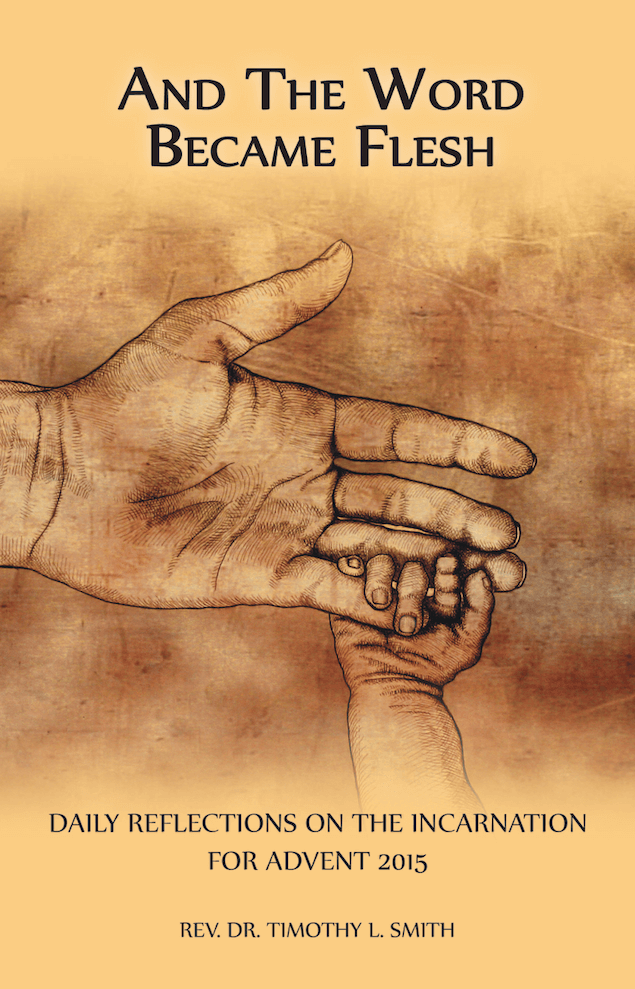The Sixteenth Day of Advent
Is not this the carpenter, the son of Mary and brother of James and Joses and Judas and Simon, and are not his sisters here with us? And they took offense at him.
Mark 6:3
People in little Nazareth knew and dismissed Jesus as “the carpenter”. Although the Greek word (tekton) is often translated as carpenter, it actually means a craftsman or builder and was used for a stonemason or woodworker. Nazareth was strewn with limestone and had few trees so that a first century tekton worked primarily in stone. Six days a week Jesus would have labored on “winepresses, millstones, olive press stones, tombstones, cisterns, farm terraces, vineyards, watchtowers, house extensions, etc.” (Ken Campbell, “What Was Jesus’ Occupation?”, Journal of Evangelical Theological Society, Sept. 2005) This gives insight into Jesus’ frequent parables about masonry, digging foundations, building towers, and stones that builders reject. Like other small village tektons, Jesus would go to the marketplace at dawn hoping to get work and earn His daily bread. Shake hands with Jesus and you would have felt strong, well worn, callused hands. Tektons were far down on anyone’s social pecking order in first century Galilee.
People often wonder about the “hidden years” of Jesus, the majority of His life spent in a job with no religious connections. “At first glance this doesn’t seem to be a very strategic use of the Son of God’s extraordinary gifts or his important messianic mission.” (Tom Nelson, Work Matters: Connecting Sunday Worship to Monday Work) The reality is that Jesus spent many more years working as a tekton than He did in messianic ministry: caring for the sick, casting out demons, and proclaiming the Good News of the Kingdom. Some might wonder if Jesus missed God’s will for His life. Hadn’t the Father sent Him from heaven for a mission of world redemption! Yet, after thirty years “hidden” in little backwater Nazareth the Father expressed delight in Jesus. At His baptism we hear the Father announce: “This is my Son, the beloved, with whom I am well pleased” (Matthew 3:17). Long before Jesus ever worked a miracle, preached a sermon, or announced God’s Kingdom, He was assured of the Father’s love and delight.
The late Dallas Willard can help us see in a new way Jesus spending the majority of His life working as a tekton:
In other words, if Jesus were to come today he could very well do what you do. He could very well live in your apartment or house, hold down your job, have your education and life prospects, and live within your family surroundings and time. None of this would be the least hindrance to the eternal kind of life that was His by nature and becomes available to us through Him. (Quoted by Tom Nelson, Work Matters: Connecting Sunday Worship to Monday Work)
The Incarnation reveals the importance of your everyday work and life to God. Jesus stamps the dignity of your daily life. He did not regard His work as a humble tekton mundane or meaningless. It was not a misuse of His gifts or powers. He was carrying out the work God had given Him to do and providing for His mother and younger siblings. Jesus was no less God or no less human for being a simple workman.
Jesus’ hidden years digging foundations, building watchtowers, and hewing cisterns were spiritually formative for Him. The Father was preparing Him for His messianic mission of being a Servant and giving His life a ransom (Mark 10:45). In a similar way, our spiritual formation takes place not only in our churches, liturgies, and spiritual practices, but in faithfully providing for others and ourselves. Our work does matter to the Father. It was in Jesus’ hidden years that He learned humble service that would later lead Him to a cross.
PONDERINGS
- What does Jesus’ willing, humble work as a tekton say to you about your daily work?
- How do you think doing daily work in our own “hidden years” might be spiritually formative?
- In line with the quotation from Dallas Willard, take a few moments to imagine Jesus doing the work you do everyday.
EMBODIED PRAYER: LYING DOWN
We spend a lot of time lying down, which makes this posture of prayer a favorite of many. I do some of my best praying lying down between two and three in the morning. Like their contemporaries, Jesus and His disciples ate Passover lying down, symbolic of being free and no longer slaves in Egypt. Lying down embodies rest and peace, our lives secure in God. David wrote in the Psalms: “I will both lie down and sleep in peace: for you alone, O LORD, make me lie down in safety“ (Psalm 4:8). David liked to think of God while lying down and talking with Him: “My soul is satisfied as with a rich feast, and my mouth praises you with joyful lips when I think of you on my bed, and meditate on you in the watches of the night” (Psalm 63:5-6).
Lying down is symbolic of knowing ourselves cared for by God: “He makes me lie down in green pastures” (Psalm 23:2). When we are fretful and anxious, God wants us to lie down and experience our rest and safety in Him.
Today, and every day (and night) of the Second Week of Advent pray the Lord’s Prayer while lying down. As you pray let yourself go into God’s strong hands.




